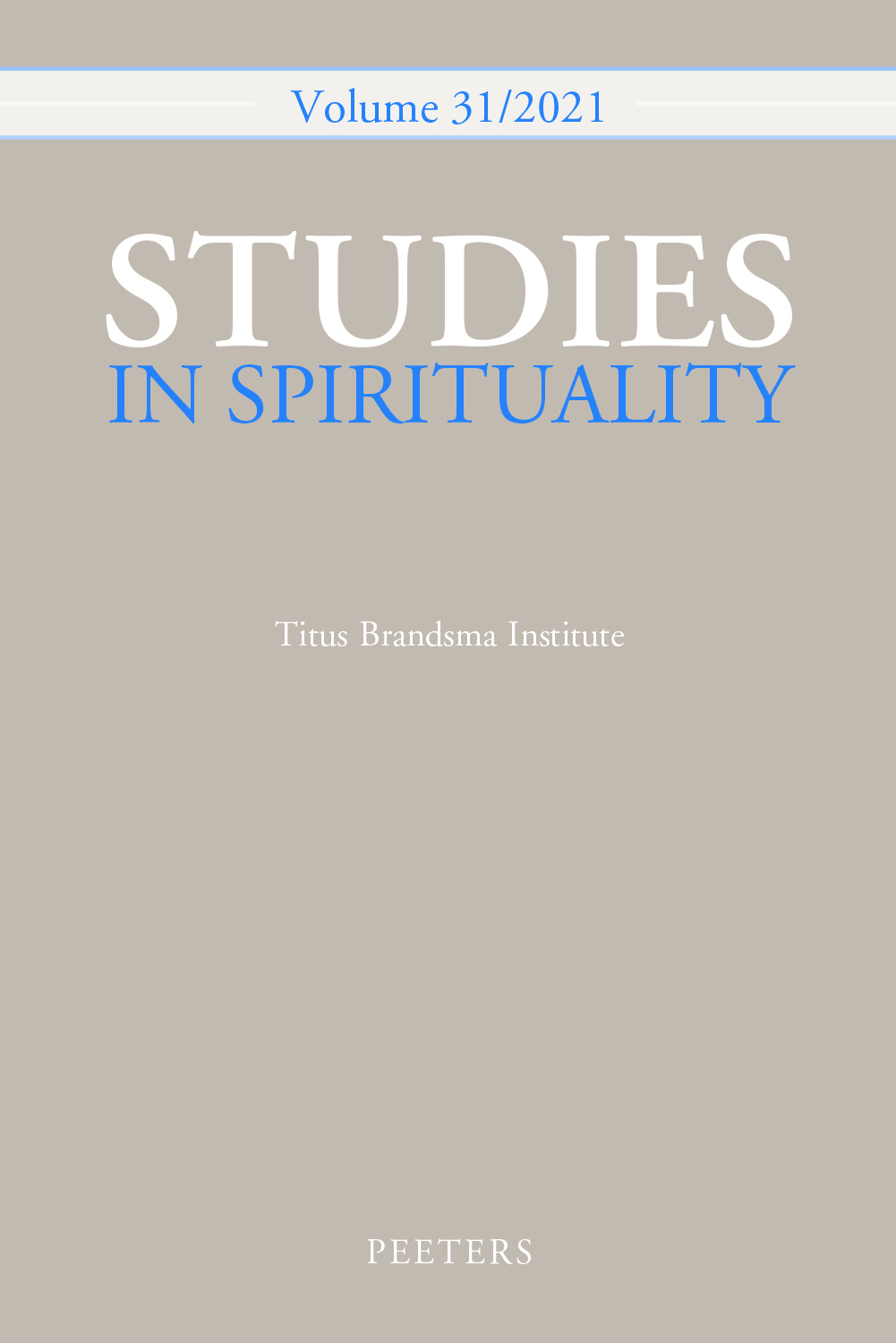 previous article in this issue previous article in this issue | next article in this issue  |

Preview first page |
Document Details : Title: Thomas Merton and Hagia Sophia Author(s): BRAS, Kick Journal: Studies in Spirituality Volume: 31 Date: 2021 Pages: 191-209 DOI: 10.2143/SIS.31.0.3289734 Abstract : Thomas Merton (1915-1968) in 1960 wrote his ‘Hagia Sophia’. In this prose poem he describes in lyrical language a feminine dimension of God, his Holy Wisdom with which he dwells in creation and in our inner self. This wisdom became human in Jesus Christ through the virgin Mary, and transforms humanity and creation through the Holy Ghost. In this essay I will investigate the sources Merton used for his concept of ‘Holy Wisdom’. He found them in the Wisdom literature of Israel. But also the concept of theoria fysike of Evagrius Ponticus and Maximus Confessor inspired him. And he was deeply influenced by the Russian Sophiology of Soloviev, Bulgakov, Berdyaev and Evdokimov. Merton had several spiritual experiences and dreams about Hagia Sophia that manifested the deep existential meaning of this concept for his contemplative life. In a letter and in his famous poem he explored the different meanings of this spiritual image of unification of God and manhood. I will end with some suggestions of the relevance of Merton’s conception for our spiritual questions of today. |
|


